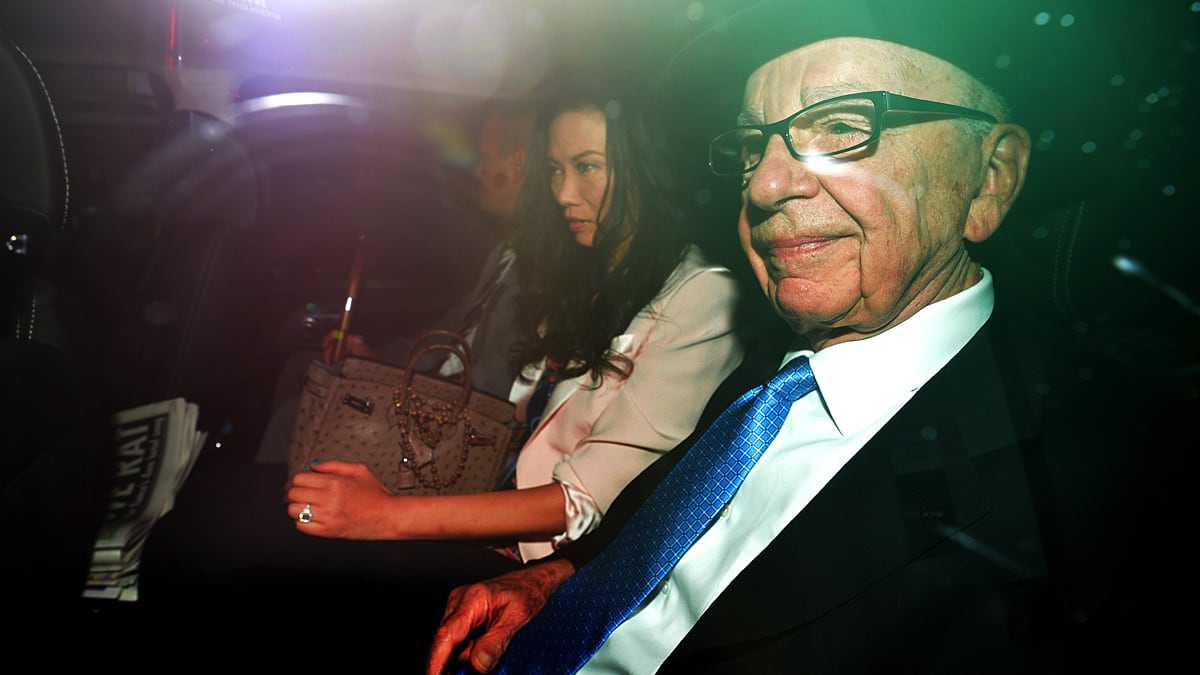Whichever way you look at it, the last 18 months have not been good for Rupert Murdoch. The fallout from the phone-hacking scandal at his onetime top-selling Sunday tabloid the News of the World has cost him dearly. Last July he was forced to close the paper—his first U.K. venture, bought way back in 1969. He had to abandon his bid to buy back the 61 percent of the now hugely profitable U.K. satellite broadcaster BSkyB that he doesn’t currently own, thus frustrating News Corp.’s ambitions to be a global leader in pay TV. He had to watch his son James turn from heir apparent into no such thing, whilst personally enduring two difficult and humiliating public grillings—one from a senior high-court judge and the other from a committee of British M.P.s, whose report on Murdoch was published Tuesday.

The consequences of the M.P.s’ report could well be more serious still. Aside from the very harsh words used by the committee to describe the actions of three senior News International executives accused of seriously misleading them, the company as a whole is described as exhibiting “wilful blindness,” “fail[ure] to investigate properly,” and “ignoring evidence of widespread wrongdoing.” That James and Rupert Murdoch apparently failed to ask appropriate questions when confronted with prima facie evidence of misbehavior—and, in James’s case, failed even to read an email he was sent containing a leading lawyer’s opinion that there was widespread evidence of hacking among the company’s ranks—is described by the M.P.s as “simply astonishing.”
The picture emerges of a company virtually devoid of effective corporate governance, with a seeming instinct for cover-up and conspiracy when challenged. The committee then went further, describing Rupert Murdoch personally as “unfit” to be running a major international company. This last finding—pressed by Labour members of the committee in the face of strong opposition from their Conservative colleagues—might, by politicizing the committee’s findings, ultimately rebound on its proponents by offering News Corp. the opportunity to portray the M.P.s and the committee’s findings as politically biased. The fact remains, however, that the overwhelming majority of the committee’s statements were agreed upon by most of its members, Conservatives included.
Aside from the report’s personal embarrassment and humiliation for Murdoch, its corporate consequences could be quite significant. The U.K. media regulator Ofcom has a continuing obligation under Britain’s broadcasting laws to ensure that any person or organization holding—or having effective control of—a broadcasting license must be “fit and proper.” This term is, for all intents and purposes, undefined and has been invoked only rarely, usually against pornographers. But any company that could fairly be described in the terms used by the M.P.s on Tuesday must run the risk of being found wanting.
After all, Britain’s system of regulation depends on the idea that those subject to it are being, at least essentially, honest. If Ofcom were to find News Corp. not “fit and proper,” then it would follow—since News Corp. owns a controlling 39 percent share in BSkyB—that the broadcast company would not be “fit and proper” either. This could potentially force a sell-down, or even a full sale of News Corp.’s stake in BSkyB.
As corporate reversals of fortune go, that would really be quite something. After all, BSkyB was started by Murdoch at huge financial risk to his entire empire at the time—he even apparently mortgaged his New York apartment at one point—and it has gone on to become an extraordinary business success story, now generating in excess of £1 billion a year in clear profit. So for Murdoch, in spite of his well-known affection for newspapers, it’s personal.
What’s more, in a twist rich with irony, it is also the scene of James Murdoch’s most notable business success. As CEO, he drove the acquisition of struggling ISP Easynet and telecom operator One Tel, putting Sky well and truly ahead of all its U.K. rivals in the race for pay TV’s holy “triple play” grail: Internet, phone, and pay TV from one supplier. Indeed, it was a result of his success at BSkyB that James looked like his father’s best chance of fulfilling his fondest wish for the family firm, to be succeeded by one of his children.
Now none of that looks likely to happen. The chances of James now succeeding his father after his (non) performance at News International—an old-media newspaper business that James apparently had no interest or commercial confidence in, a point so damagingly dissected by the M.P.s’ committee—must realistically be close to zero. Even if Ofcom ultimately fails to act, which seems most likely, the chances of News Corp. being allowed to buy the other 61 percent of Sky would currently be put by most observers at close to zero. That scuppers the company’s corporate growth plan and must raise questions about the future of News Corp.’s involvement with BSkyB at all. If News Corp. can’t buy it, maybe shareholders would rather sell it? Shareholder tolerance for Murdoch’s enduring love of print and papers was wearing thin anyway and has now almost certainly evaporated entirely.
Which raises the prospect: in not too many years’ time, there could be a News Corp. with no Sky, no newspapers, and no Murdoch in charge. So, no, it hasn’t been a great 18 months for Rupert Murdoch.




